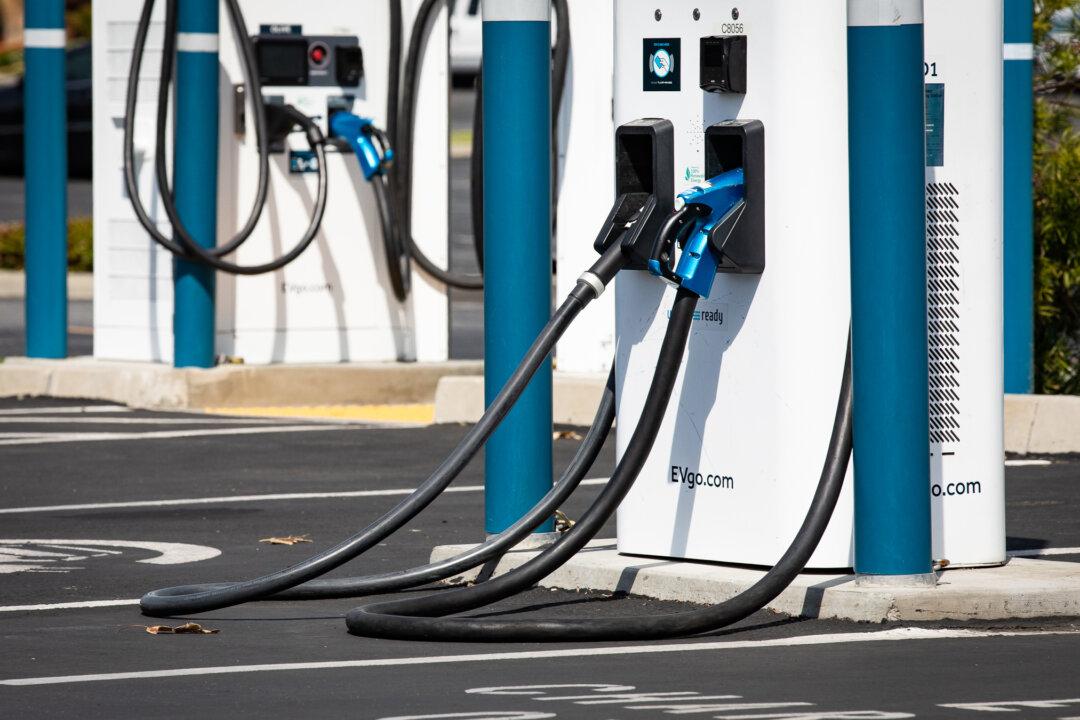All 50 states in the United States received final approval Tuesday to begin construction on a nationwide network of thousands of electric vehicle (EV) chargers covering approximately 75,000 miles of highway across the country.
The Transportation Department said in a press release that it has approved the Electric Vehicle Infrastructure Deployment Plans from the last set of 17 states, meaning that all 50 states, the District of Columbia, and Puerto Rico will now have access to all fiscal year 2022 and 2023 National Electric Vehicle Infrastructure (NEVI) Formula Program funding, totaling more than $1.5 billion for those two years.




